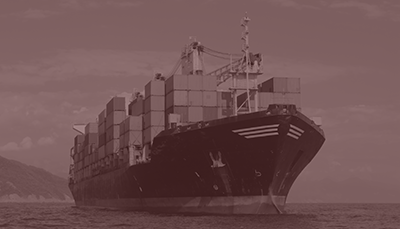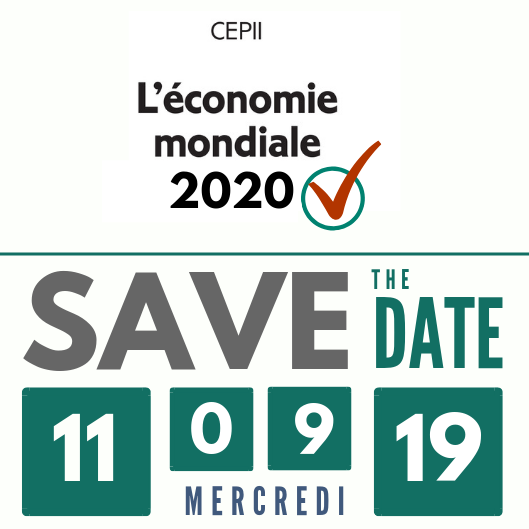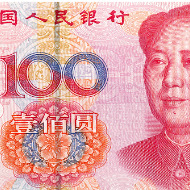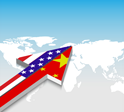Some policymakers believe that EU competition policy prevents the emergence of industrial champions. In this post Sébastien Jean, Anne Perrot & Thomas Philippon argue that Europe’s competition policy has successfully contained the rise in concentration and excess profits, and the EU should not follow the US in weakening its approach. Instead, the EU needs to strengthen its trade policy to be more assertive on reciprocity in market access and control of industrial subsidies. In February 2019, Margrethe Vestager, the EU Competition Commissioner, blocked the proposed rail merger between Siemens and Alstom (European Commission 2019). But, trapped between heavily subsidised Chinese firms and unregulated US giants, should the EU relax its competition policy in the hope of creating its own giants? This line of reasoning has gained traction among EU policymakers. Many fear that the region's rigid competition policy is too rigid, and a disadvantage in a world where others don’t play by the same rules. Some even argue that the Union's competition policy could get in the way of its strategic objectives. >>> |
|
- Sectoral Reallocations, Real Estate Shocks and Productivity Divergence in Europe: A Tale of Three Countries
Thomas Grjebine, Jérôme Héricourt, Fabien Tripier - The dollar and the Transition to Sustainable Development: From Key Currency to Multilateralism
Michel Aglietta, Virginie Coudert - Setting the Stage for RMB Internationalization - Liberalizing the Capital Account and Strengthening the Domestic Bond Market
Michel Aglietta, Camille Macaire
- Combien l’incertitude créée par le Brexit a coûté à l’économie britannique ?
Fabien Tripier - Mondialisation : le duel américano-chinois
Sébastien Jean - Signaux contradictoires du marché du logement
Thomas Grjebine - L'Europe aussi sait faire émerger des géants industriels
Thomas Philippon, Sébastien Jean, Anne Perrot - Make OMC great again ?
Sébastien Jean - L’évitement fiscal des multinationales en France : combien et où ?
Vincent Vicard - Les investissements directs étrangers ne permettent pas de réduire la pauvreté
Gilles Dufrénot - Les échanges agricoles, otages de la guerre commerciale
Charlotte Emlinger - Pourquoi la flambée des prix de l’immobilier est-elle mondiale ?
Thomas Grjebine
- Evitement fiscal des multinationales : le rôle clé des plateformes
Farid Toubal, Sébastien Laffitte
- Exchange rate pass-through to import prices: Accounting for changes in the Eurozone trade structure
Antonia Lopez-Villavicencio, Valérie Mignon - The transmission channels of unconventional monetary policy: Evidence from a change in collateral requirements in France
Anne-Laure Delatte, Pranav Garg, Jean Imbs
- Évaluation macro-économique des impacts de l’Accord économique et commercial global entre le Canada et l’Union européenne
Cecilia Bellora, Jean Fouré, Lionel Fontagné
L'Afrique de l'Ouest: perspectives économiques
3 juillet 2019
L'économie mondiale 2020 - conférence de présentation
11 septembre 2019
Petit-déjeuner débat "Guerres commerciales" avec Sébastien Jean, Directeur du CEPII
17 septembre 2019
"Why Europe must untie its Gordian Safe Asset Knot " with Michala Marcussen, Group Chief Economist and Head of Economic and Sector Research, Société Générale
24 septembre 2019
"Brexit, le compte à rebours"
avec Iain Begg, London School of Economics and Political Science, et Robert Ophèle, Président de l'Autorité des marchés financiers (AMF)
15 octobre 2019
The 2019 Euro-Latin Network on Integration and Trade (ELSNIT)
Conference hosted by the CEPII
23 - 24 octobre, 2019
Research seminar "Globalization and international tax competition" by Professor Assaf Razin, Cornell University and Tel Aviv University
6 novembre 2019
Immigration in OECD Countries - 9th Annual International Conference
12 - 13 décembre, 2019
- boursorama.com
La blockchain, nouvel intermédiaire de confiance ?
Valérie Mignon - La question du jour (France Culture)
Pourquoi la flambée des prix de l’immobilier est-elle mondiale ?
Thomas Grjebine - Affaires étrangères (France Culture)
Mondialisation : le duel américano-chinois
Sébastien Jean - The Conversation
L’onde de choc du Brexit sur la maison Europe et la France
Deniz Ünal - The Conversation
Le fort impact sur la Turquie des sanctions internationales contre l’Iran
Deniz Ünal - L'économiste (Challenges)
L'Europe aussi sait faire émerger des géants industriels
Thomas Philippon, Anne Perrot, Sébastien Jean - VOX
EU competition policy should not be sacrificed but trade policy should be strengthened
Sébastien Jean, Anne Perrot, Thomas Philippon
Combien l’incertitude créée par le Brexit a coûté à l’économie britannique ? Le résultat du référendum en faveur du Brexit a plongé l’économie britannique dans l’incertitude depuis maintenant trois ans. Combien cette incertitude a-t-elle coûté à l’économie britannique ? Pour répondre à cette question Fabien Tripier propose une méthode qui mesure le niveau d’incertitude politique et son effet sur l'économie. Selon l'auteur le coût du Brexit s’élève depuis 2016 à 16 milliards de livres sterling par an pour l’économie britannique, ce qui n’a rien d’une catastrophe. >>> |
The financial system in China does not yet match China’s economic weight on the global stage. Nor does it reflect the geopolitical ambition that China’s leaders have demonstrated over the past few years An important reason of such a situation is the mismatch of its financial system relative to the pattern of financial globalization. This mismatch came in the limelight when the Chinese leadership started to reinforce their support to RMB internationalization through a gradual liberalization of the capital flows starting 2014. After the financial turmoil of mid-2015 to the spring of 2016, it appeared that opening the capital account should be a lengthy and progressive process.The present Policy Brief aims at understanding the sequence of this process against the theoretical framework of Mundell’s trilemma to point out the stages of this double-sided process. Michel Aglietta & Camille Macaire >>> |
Le conflit Chine-États-Unis va-t-il conduire à une forme de démondialisation ? La guerre commerciale entre les États-Unis et la Chine a franchi une nouvelle étape avec la décision de Google de couper les ponts avec le géant chinois des smartphones Huawei. Les Américains sont tentés de rentrer dans un conflit où on ne cherche pas à gagner mais à infliger le plus de pertes possible à l’adversaire, alors qu’il faut espérer une approche constructive globale. Quant à l’Europe, elle a intérêt à rester dans un système organisé de relations commerciales et que la Chine accepte le jeu d’une compétition équitable, ce qui suppose de réformer les règles multilatérales concernant la réciprocité dans l’accès aux marchés, les subventions industrielles et les transferts de technologie. Sébastien Jean >>> |
- Nous contacter
- Nos autres sites
ISSN: 1255-7072
Directeur de publication : Antoine BouëtRédacteur en chef : Dominique Pianelli


















